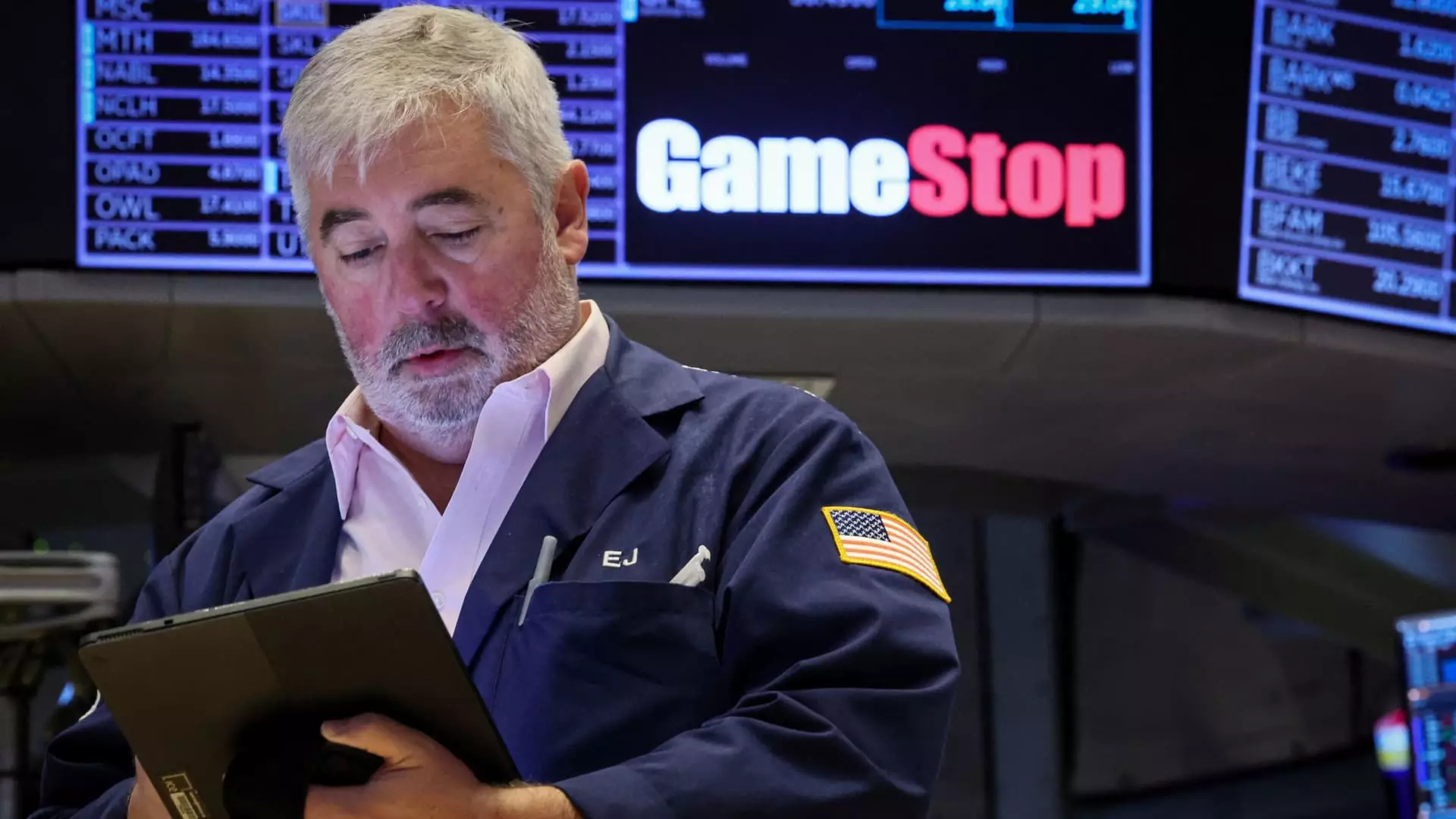GameStop, once celebrated in the retail trading revolution as the darling of meme stock enthusiasts, is now teetering on an edge that could plunge it into a chasm of misplaced ambition. The recent decision to raise $1.3 billion through the issuance of convertible senior notes to fund a foray into Bitcoin is not only questionable but indicates a profound misunderstanding of market dynamics and corporate value. The stock, which had temporarily regained momentum with a nearly 12% rally, subsequently plummeted over 12% in a single day—a stark indicator of investor skepticism about this uncharted territory.
Ignoring Reality: A Return to Promised Land
GameStop’s leadership appears to be taking a page from MicroStrategy’s playbook, a company that turned its cash reserves into a Bitcoin treasury. However, the circumstances surrounding GameStop are markedly different. MicroStrategy’s stock realistically reflects the value of its digital assets, trading at less than twice that of its Bitcoin holdings, while GameStop boasts a valuation of an exorbitant $12.7 billion—double its cash reserves post-convertible issuance. Such speculation breeds a dangerous disconnect. Shareholders should be wary of the road ahead. By pursuing this method, GameStop risks transforming itself from a video game retailer to a cryptocurrency speculation entity without a solid foundation.
A Ballooning Valuation in a Declining Market
The relocation of corporate funds into cryptocurrencies typically represents a bold strategy for growth, yet for GameStop, this approach criticizes its standing. Wall Street analysts like Michael Pachter articulate an uneasy perspective: while the board’s enthusiastic approval may have temporarily boosted optimism, the inherent risk is tangible. Pachter suggests that investors in the new convertible notes will receive zero coupons, essentially betting on GameStop’s ability to sustain its meme-led market dominance for another five years—a precarious wager at best.
Market Sentiment: The Impermanent Meme
This corporate gamble could translate GameStop’s identity into a transient phase defined by fleeting meme status rather than sustainable business practices. Investors, seduced by the potential of cryptocurrency, seem to overlook the fundamental volatility associated with such assets. GameStop’s effort to convert corporate cash into Bitcoin may place the company at the mercy of market whims, undermining its original business model and deteriorating shareholder value. The exuberance of meme insignia must give way to strategic and long-term planning—something that this approach blatantly disregards.
In embracing cryptocurrency, GameStop reveals the existential crisis of a traditional retailer attempting to leap into the digital age without a well-defined strategy. The $1.3 billion gamble to buy Bitcoin speaks volumes not just about the ambitions of its board but also about the pitfalls of neglecting core business operations in favor of trendy financial maneuvers. This bold yet misguided decision may serve as a cautionary tale, potentially leading GameStop down a path from which recovery is anything but guaranteed.

